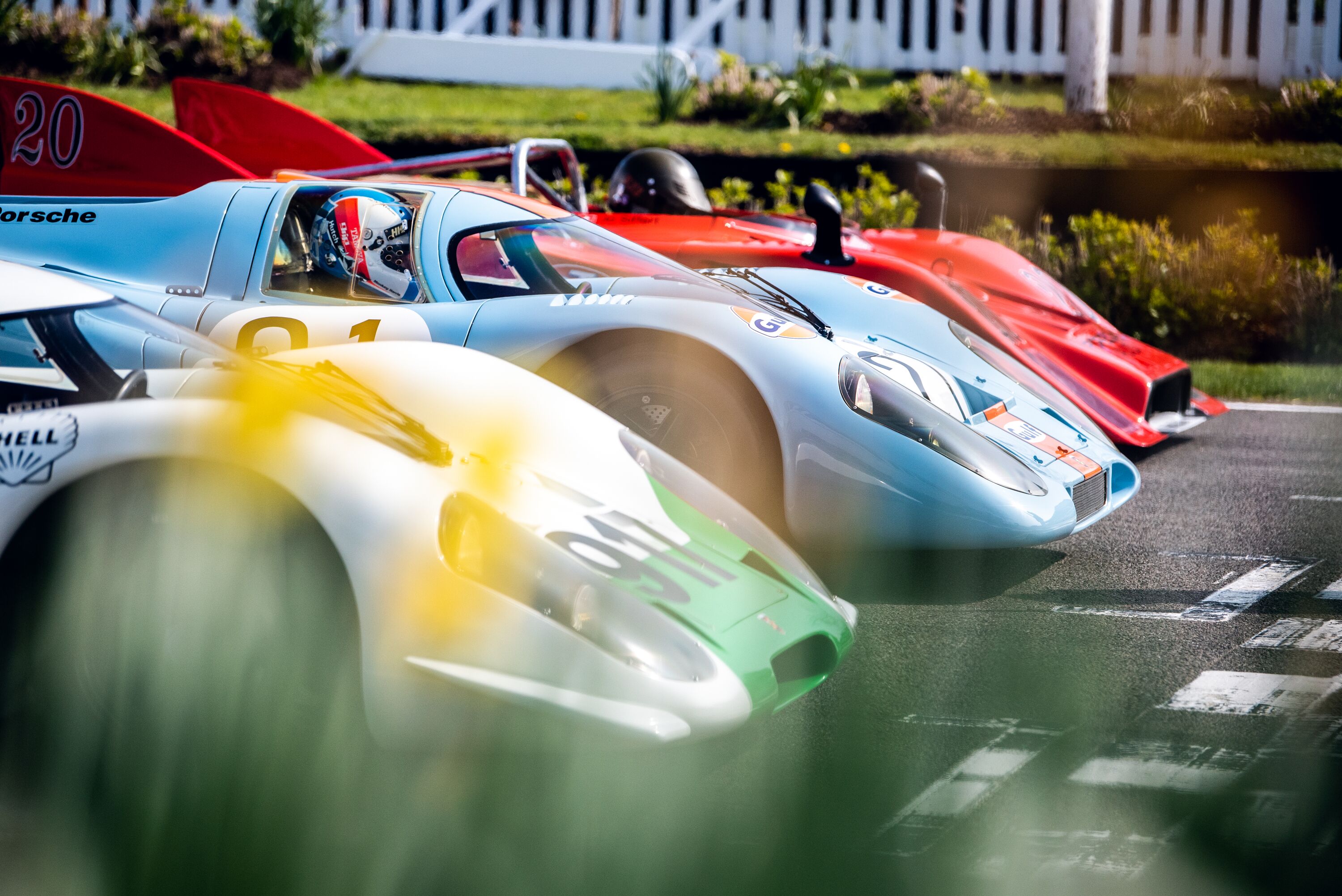INTERVIEW: Stefano Domenicali on F1’s "crazy ideas" to crack America
The progress of Formula 1 since Liberty Media took the helm from former supremo Bernie Ecclestone over eight years ago has been nothing short of remarkable.
Over the intervening period, initially with Chase Carey as its figurehead and for the last five years with Stefano Domenicali, like the California gold rush F1 has boomed to such an extent that each team is now valued to the tune of at least $1billion.

Ecclestone, after 40 years in control, had clearly taken F1 as far as he could, and he should be recognised and applauded for his achievements over the decades he was in charge, turning the sport run by 'garagistas' into a global entity.
But by his own admission — and I recall the day clearly as I was sitting in front of him at the time when he addressed a small group of media in his Knightsbridge office — he was at a complete loss over social media and how to make money from it. It was soon after that he relinquished control.
Liberty Media has opened up F1 to the masses, turning the near-faceless drivers who were rarely seen behind the helmet visor into household stars via the Netflix series Drive to Survive; allowing the teams free reign to embrace social media and use it as a tool to explore and engage rather than stifling its potential; even turning to Hollywood to add to its worldwide appeal with the release this year of F1: The Movie.
On track, F1 has tried to spice up the show by adding the previously derided sprints, with six per year at present but with plans for more, whilst the calendar has been expanded to a record-breaking 24 Grands Prix. The addition of F1 Academy has also opened up a pathway for female talent, and next season a long-overdue 11th team, Cadillac, joins the grid.
Overall, the number of eyeballs on F1 has considerably increased, attracting a younger and more diverse demographic, with more women watching and engaging with the sport than ever before.

As the driving force of F1, President and CEO Domenicali naturally could not be happier.
“F1 racing is technology, but it has evolved into a world of entertainment, capturing new fans, new partners, new content, with the reward being massive in terms of revenues and growth, which have been tremendously strong in the last five years,” Domenicali said, in an interview with this writer for The New York Times.
“Our younger audience is growing. We believe we are capturing fans who will become avid in the longer term. The health and attractiveness of our sport can also be witnessed by the fact we have never had so many partnerships. This, for me, is a sign that we are doing the right thing to be even stronger in the future.”
But there is one particularly engaging story from Domenicali which underlines that for all of F1's success, it remains a notoriously complex sport to grasp and understand, beyond merely the fact there are 20 drivers and ten teams striving for success 24 weekends per year.
The market in the United States is one Ecclestone did his utmost to exploit, trying and failing on occasion before gaining a foothold with the United States Grand Prix in Austin. But even then, there was a sense the US audience was only hardcore and the masses were unwilling to engage.
On Liberty Media's watch, it has added a race in Miami, and most recently its greatest coup of Las Vegas, going so far as to self-promote that race, the first time the sport has done so in its history.

But it is clear from Domenicali's anecdote that there is still a bridge to be built, to cross the gap that undoubtedly exists if F1 is to truly 'crack' America.
“From one Grand Prix we moved straightaway, in the blink of an eye, to three, and very successfully,” he said. “We needed to respect the fact that in the U.S., American sports are in another league when it comes to culture and the attention on it. Sport in the U.S. is something that is lived every day.
"From the moment you wake up, you are bombarded with sporting news that creates that culture. We are doing the right thing in terms of relevance, with Drive to Survive and with the F1 movie providing food for thought, something to discuss.”
Domenicali said Formula 1 had only started to scratch the surface in the United States, particularly in educating its audience.
“It’s up to us, and everyone involved in the sport, to explain who we really are,” he said. “Because we are not yet there, for the majority of our fans, to get into our sport. It is an incredible opportunity for us to explain, ‘What is Formula 1?’.
“We know what is inside a car. A lot of people don’t need to think about it. When we talk about a gearbox, we know what it is, but in certain markets, they don’t.”

And then, in a conversation with friends in the United States, he "was asked an incredible question: ‘Do the drivers need to comply with the speed limits on the streets when they’re racing?’. Oh my God! That tells us that we need to be very open-minded to get into the heads and the hearts of the American fans.
"There is an incredible opportunity to do something about it, but we need to be careful in believing that all the people know what we are talking about, and that we have to try to be simple.”
The levels of complexity increase next season when F1 embraces another change to its power unit, one that has at least attracted the likes of Audi, in taking over the Sauber operation; Cadillac as the 11th team (even if it will run a Ferrari PU for at least the first two years), and Ford, with its partnership with Red Bull as the team competes with its own system for the first time.
Behind the scenes, however, there have been talks of another change after a few years, primarily out of concern that the reliance on 50 per cent of electrical energy next season is a step too far. The die has been cast. What F1's new fans will be able to comprehend remains to be seen, which is where F1 has to engage and educate.
On track, Domenicali has confirmed that "crazy ideas" have been discussed, as it appears within F1 there is a desire to continually be innovative with its product, rather than maintaining the status quo.

As mentioned, there will be more sprints. Beyond that, Domenicali has previously discussed either getting rid of practice sessions or at least incentivising them to make them more competitive, potentially with points on offer. Most recently, it has been suggested the Grands Prix should be shorter, an idea that has not gone down too well with the drivers.
"With regard to a different format, I would say that we need to think about what we can do," said Domenicali. "We discussed in the last F1 Commission meeting ideas that are really crazy, in a way, but could be relevant for being attractive in the future.
"The more we can remove our conventionality, the better we will be able to keep the attention of mainly the young generation, because they need to always be attracted to something new. But we need to make sure that if we bring something new, the ideas are good.
"The younger generation is not interested in following everything unless something is happening every moment. How we do that is a good question, one on which we need to find the right answer."
Domenicali concedes that during his time in charge, F1 has “evolved massively with a speed that I was not expecting." Perhaps, rather than continually trying to revolutionise F1, it is time to sit back and enjoy the view for a while. You sense, though, that is not going to happen.
Tickets to the 2026 Goodwood Revival are on sale now for 2025 ticket buyers and GRRC Members and Fellows. If you’re not already part of the GRRC, you can sign up today to seal your place at the 2026 Revival now before the end of this limited window.
Images courtesy of Getty Images.
formula 1
f1
f1 2025
interview
Stefano Domenicali







